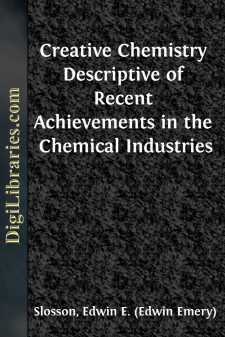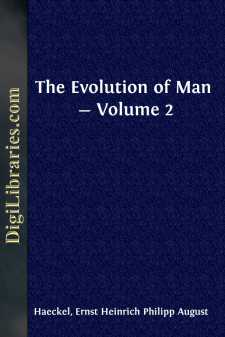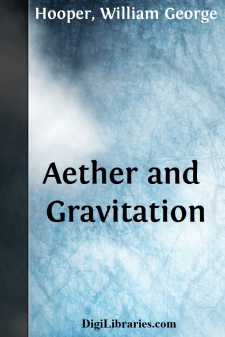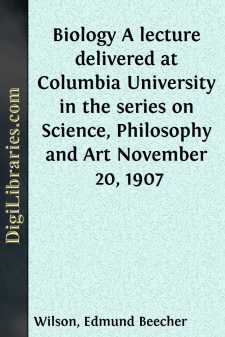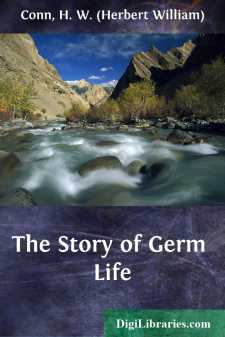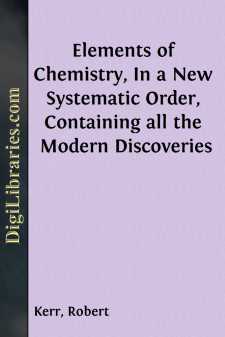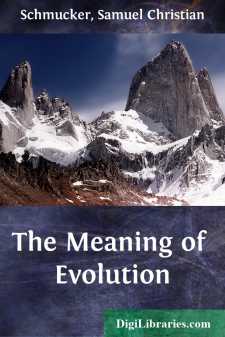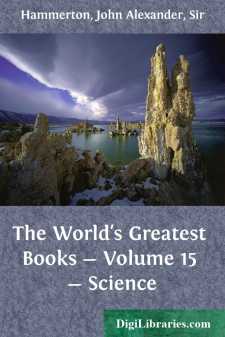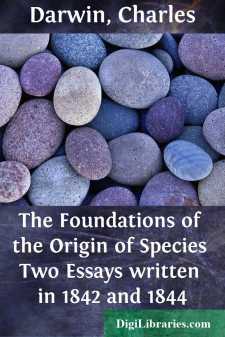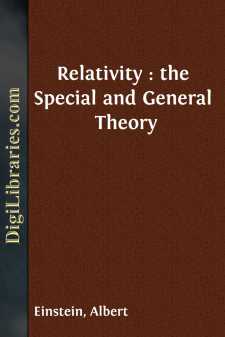Science
- Astronomy 18
- Biology 40
- Chemistry 13
- Electricity 1
- General 38
- History 6
- Light 1
- Paleontology 2
- Philosophy & Social Aspects 1
- Physics 3
- Relativity 2
- Study & Teaching 1
- Waves & Wave Mechanics 1
Science Books
Sort by:
I THREE PERIODS OF PROGRESS The story of Robinson Crusoe is an allegory of human history. Man is a castaway upon a desert planet, isolated from other inhabited worlds—if there be any such—by millions of miles of untraversable space. He is absolutely dependent upon his own exertions, for this world of his, as Wells says, has no imports except meteorites and no exports of any kind. Man has no wrecked...
more...
In turning from the embryology to the phylogeny of man—from the development of the individual to that of the species—we must bear in mind the direct causal connection that exists between these two main branches of the science of human evolution. This important causal nexus finds its simplest expression in "the fundamental law of organic development," the content and purport of which we have...
more...
INTRODUCTORY NOTES The author in this work endeavours to solve the greatest scientific problem that has puzzled scientists for the past two hundred years. The question has arisen over and over again, since the discovery of universal gravitation by Sir Isaac Newton, as to what is the physical cause of the attraction of gravitation. “Action at a distance” has long ceased to be recognized as a...
more...
BIOLOGY I must at the outset remark that among the many sciences that are occupied with the study of the living world there is no one that may properly lay exclusive claim to the name of Biology. The word does not, in fact, denote any particular science but is a generic term applied to a large group of biological sciences all of which alike are concerned with the phenomena of life. To present in a...
more...
CHAPTER I. BACTERIA AS PLANTS. During the last fifteen years the subject of bacteriology [Footnote: The term microbe is simply a word which has been coined to include all of the microscopic plants commonly included under the terms bacteria and yeasts.] has developed with a marvellous rapidity. At the beginning of the ninth decade of the century bacteria were scarcely heard of outside of scientific...
more...
by:
Robert Kerr
The very high character of Mr Lavoisier as a chemical philosopher, and the great revolution which, in the opinion of many excellent chemists, he has effected in the theory of chemistry, has long made it much desired to have a connected account of his discoveries, and of the new theory he has founded upon the modern experiments written by himself. This is now accomplished by the publication of his...
more...
A FOREWORD Before my window lies an enchanting landscape. It embraces a stretch of open rolling country, beautiful as the eye could wish to rest upon. The sun with its slanting rays is not giving it heat enough in these winter months to make it blossom in its radiant beauty, but the mind goes easily back through the few brown months to the time when the field not far away was waving with its rich...
more...
Science JOHN MILNE BRAMWELL Hypnotism: Its History, Practice and Theory John Milne Bramwell was born in Perth, Scotland, May 11, 1852. The son of a physician, he studied medicine in Edinburgh, and after obtaining his degree of M.B., in 1873, he settled at Goole, Yorkshire. Fired by the unfinished work of Braid, Bernheim and Liébeault, he began, in 1889, a series of hypnotic researches, which, together...
more...
by:
Charles Darwin
INTRODUCTION We know from the contents of Charles Darwin’s Note Book of 1837 that he was at that time a convinced Evolutionist. Nor can there be any doubt that, when he started on board the Beagle, such opinions as he had were on the side of immutability. When therefore did the current of his thoughts begin to set in the direction of Evolution? We have first to consider the factors that made for such...
more...
by:
Albert Einstein
PART I THE SPECIAL THEORY OF RELATIVITY PHYSICAL MEANING OF GEOMETRICAL PROPOSITIONS In your schooldays most of you who read this book made acquaintance with the noble building of Euclid's geometry, and you remember — perhaps with more respect than love — the magnificent structure, on the lofty staircase of which you were chased about for uncounted hours by conscientious teachers. By reason of...
more...


